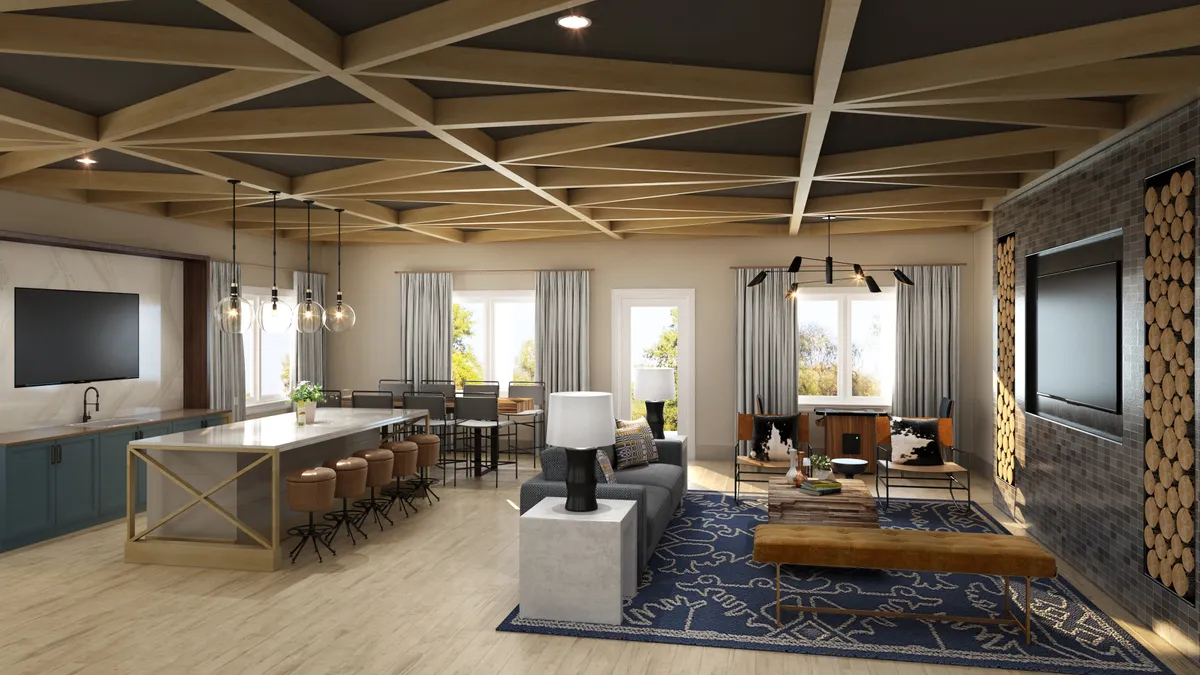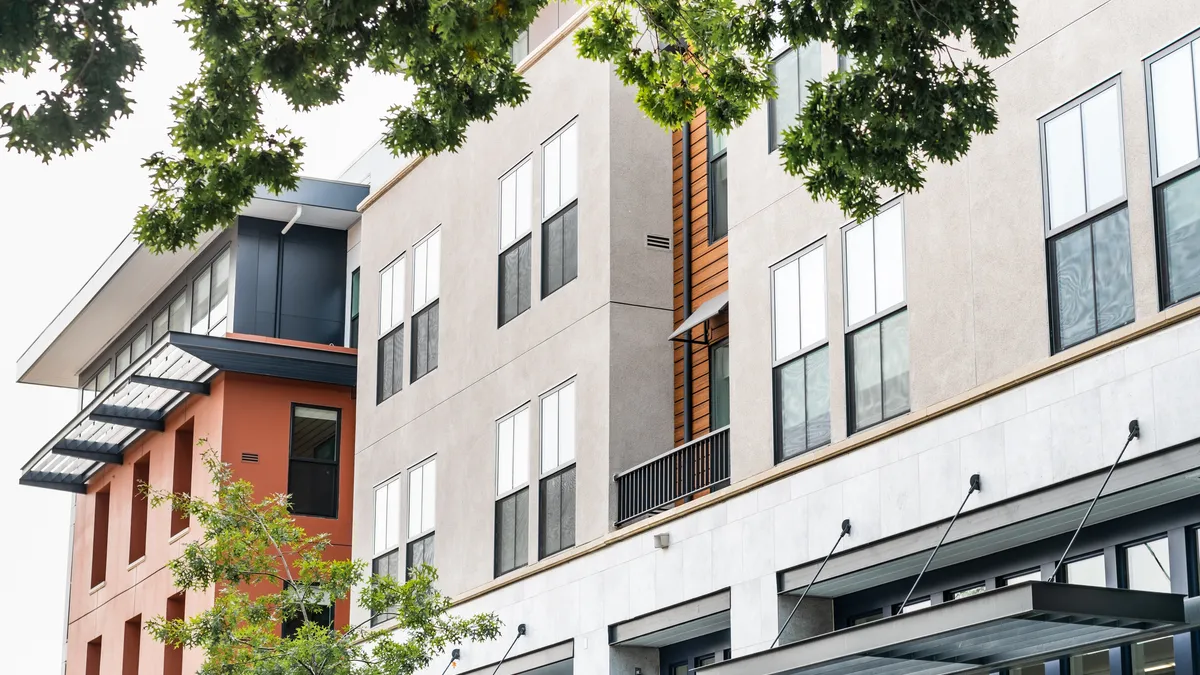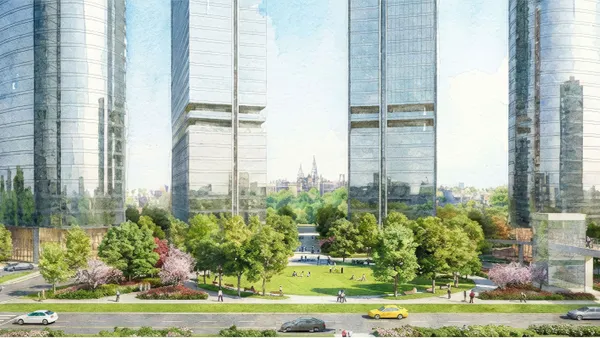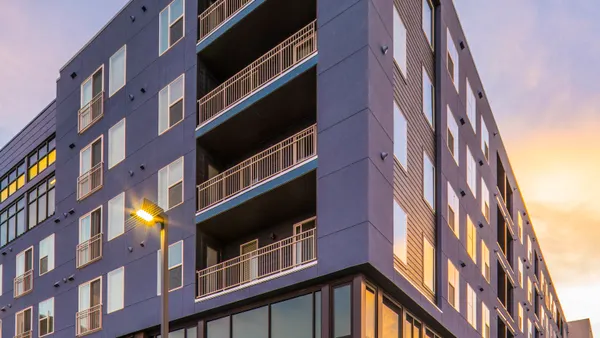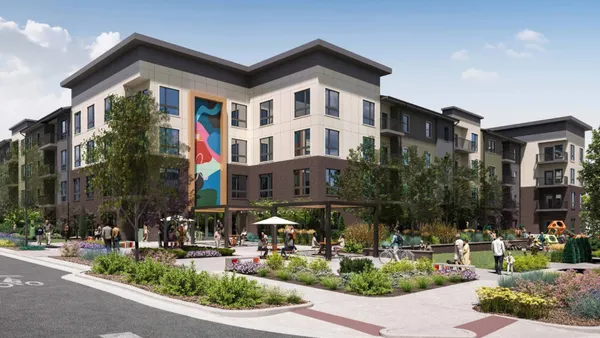When Kaplan Residential began its 250-unit Wayford at Concord townhome project in Concord, North Carolina, (pictured above) in 2019, it wasn’t an introduction to the build-to-rent sector. It was more of a throwback.
More than 20 years earlier, Kaplan President Morris Kaplan built Townhouse Atlanta – a 254-unit townhome project in the city’s midtown area. Since then, the firm has built more than 30,000 units of primarily apartments.
“That [Townhouse Atlanta] is our crown jewel,” says Nathan Kaplan, Morris’ son and a partner at Kaplan Residential. “The only way that you could build townhouses in an urban center like that was when land was cheap. We're [still] getting mid $2,000s rents on a project that's 30 years old.”
Starting with the project in Concord, Kaplan has built another 400 units of townhomes over the past couple of years with 400 units under construction and yet another 400 in the pipeline.
Here, Kaplan talks with Multifamily Dive about the Bay Harbor, Florida-based company’s return to rental townhomes and why less density hasn’t meant an easier entitlement process.
This interview has been edited for brevity and clarity.
MULTIFAMILY DIVE: What drove you to build rental townhouses?
NATHAN KAPLAN: A flat is really good for a single person or maybe a young couple. But once you get to your mid 30s or late 30s and you have a baby, you want more space.
Looking at all the new supply that has come online since the [Great] Recession, there was a huge lack of supply [sized] between a 3,000-square-foot home and a flat. We thought there was definitely demand for that type of product, and we had proof in that original project that my dad built. We thought a rental townhouse was attractive to people. So that pushed us to lean into this a few years ago.
As other developers saw a handful of successful rental townhouses, they started looking much more seriously at it. Companies were building 200 rental flats, and then they just tacked on 10 townhouses. And those townhouses would always be [rented] at huge premiums and just fly off the shelves. So, instead of townhouses being 5% of a community, we just made it 100% of the community.
Are you still facing entitlement issues with these less dense townhomes?
We thought that [townhomes] would get a much better reception from neighborhoods and zoning [departments] because it was at a much higher rental price point. We thought municipalities and neighbors would feel better that they were getting maybe a young family instead of 25-year-olds moving into their community, especially the suburban communities. But I would say that it hasn't been as easy as we thought.
We've gotten pushed out of some communities. We've gotten rejected by quite a handful of neighborhoods. I think neighborhoods have seen so many new projects over the last eight or nine years that they just got to a point where they're like, “We don't want any more [development]. We've had enough.” So there is a lot more neighborhood pushback [now] than there was five or six years ago when people were just excited that the economy was doing well and there was new development that was coming into these areas. I don't want to call it fatigue but a lot of neighborhoods have really pushed back on new projects.
Have you had to walk away from projects because of this opposition? Have you had to sell land because of community opposition?
We have had to drop projects, unfortunately. But we have also had a few cases where we've gotten approvals to do for sale [housing]. When you go through a rezoning process, in a lot of municipalities it can take six to 12 months.
The way that the market has improved year after year, the land has increased in value. So a lot of times, as a developer, you'll say, “Look, I don't want to lose all the money that I've spent on all these reports, on the architectural plans and on my legal costs.” So you try to recover that. And if you can make a little profit [by selling to a for-sale developer], you try.
Where have you run into the most problems on these? Have certain markets been problematic?
I don't want to call out a particular area. Markets that have good school districts are always going to be tougher because they [residents] are very protective of their area. Maybe you have a neighborhood that has a lot of land or a neighborhood that has expensive homes, and they don't want to deal with traffic. They think with 200 units [being built], they will be sitting in bumper-to-bumper traffic for two hours every morning. You hear everything.
Whether it's demographics or the school districts or the price of the homes around you, you can sense it [the opposition]. In some communities, a zoning attorney will tell you if the [county] staff or the council is anti-development at this point or pro-development.


